
Filter News
Area of Research
- Advanced Manufacturing (22)
- Biology and Environment (17)
- Building Technologies (4)
- Clean Energy (175)
- Computer Science (1)
- Electricity and Smart Grid (1)
- Fuel Cycle Science and Technology (1)
- Functional Materials for Energy (1)
- Fusion and Fission (6)
- Fusion Energy (1)
- Isotopes (1)
- Materials (42)
- Materials for Computing (10)
- National Security (39)
- Neutron Science (13)
- Nuclear Science and Technology (4)
- Supercomputing (22)
- Transportation Systems (2)
News Topics
- (-) 3-D Printing/Advanced Manufacturing (121)
- (-) Buildings (57)
- (-) National Security (61)
- (-) Transportation (97)
- Advanced Reactors (34)
- Artificial Intelligence (91)
- Big Data (53)
- Bioenergy (91)
- Biology (98)
- Biomedical (58)
- Biotechnology (22)
- Chemical Sciences (63)
- Clean Water (29)
- Climate Change (99)
- Composites (26)
- Computer Science (187)
- Coronavirus (46)
- Critical Materials (26)
- Cybersecurity (35)
- Decarbonization (79)
- Education (4)
- Element Discovery (1)
- Emergency (2)
- Energy Storage (108)
- Environment (194)
- Exascale Computing (37)
- Fossil Energy (5)
- Frontier (42)
- Fusion (54)
- Grid (62)
- High-Performance Computing (84)
- Hydropower (11)
- Irradiation (3)
- Isotopes (53)
- ITER (7)
- Machine Learning (47)
- Materials (144)
- Materials Science (140)
- Mathematics (7)
- Mercury (12)
- Microelectronics (3)
- Microscopy (51)
- Molten Salt (8)
- Nanotechnology (60)
- Net Zero (13)
- Neutron Science (131)
- Nuclear Energy (108)
- Partnerships (44)
- Physics (61)
- Polymers (33)
- Quantum Computing (34)
- Quantum Science (69)
- Renewable Energy (2)
- Security (24)
- Simulation (47)
- Software (1)
- Space Exploration (25)
- Statistics (3)
- Summit (57)
- Sustainable Energy (125)
- Transformational Challenge Reactor (7)
Media Contacts
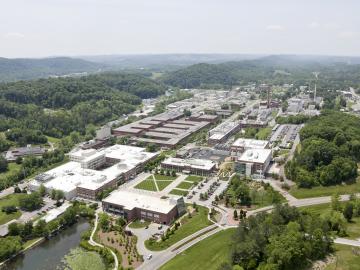
Advanced materials research to enable energy-efficient, cost-competitive and environmentally friendly technologies for the United States and Japan is the goal of a memorandum of understanding, or MOU, between the Department of Energy’s Oak Ridge National Laboratory and Japan’s National Institute of Materials Science.
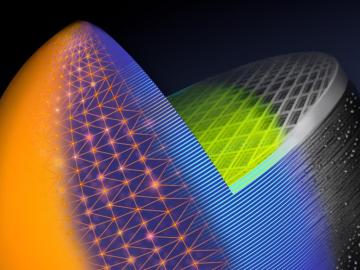
Researchers at ORNL have developed the first additive manufacturing slicing computer application to simultaneously speed and simplify digital conversion of accurate, large-format three-dimensional parts in a factory production setting.
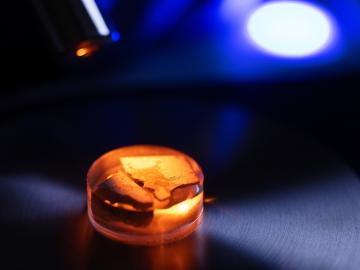
Despite strong regulations and robust international safeguards, authorities routinely interdict nuclear materials outside of regulatory control. Researchers at ORNL are exploring a new method that would give authorities the ability to analyze intercepted nuclear material and determine where it originated.

Bill Partridge, a recently retired distinguished researcher at the U.S. Department of Energy’s Oak Ridge National Laboratory, was recognized by DOE’s Vehicle Technologies Office, or VTO, for leading world-class research in transportation throughout his 25-year career.
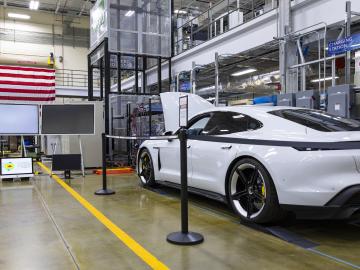
Researchers at ORNL have successfully demonstrated the first 270-kW wireless power transfer to a light-duty electric vehicle. The demonstration used a Porsche Taycan and was conducted in collaboration with Volkswagen Group of America using the ORNL-developed polyphase wireless charging system.
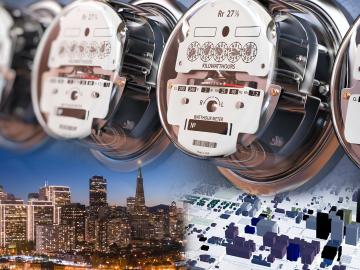
Researchers at Oak Ridge National Laboratory have developed free data sets to estimate how much energy any building in the contiguous U.S. will use in 2100. These data sets provide planners a way to anticipate future energy needs as the climate changes.

Jinghui Yuan, an R&D staff member in the Applied Research for Mobility Systems group at the Department of Energy’s Oak Ridge National Laboratory, has been elevated to a senior member of the Institute of Electrical and Electronics Engineers.
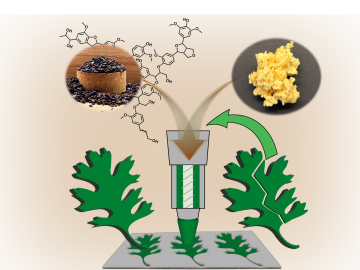
Oak Ridge National Laboratory scientists ingeniously created a sustainable, soft material by combining rubber with woody reinforcements and incorporating “smart” linkages between the components that unlock on demand.
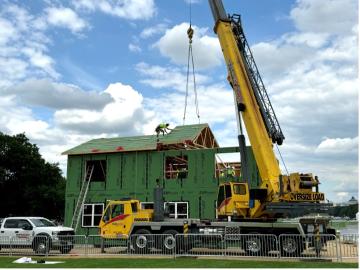
Building innovations from ORNL will be on display in Washington, D.C. on the National Mall June 7 to June 9, 2024, during the U.S. Department of Housing and Urban Development’s Innovation Housing Showcase. For the first time, ORNL’s real-time building evaluator was demonstrated outside of a laboratory setting and deployed for building construction.
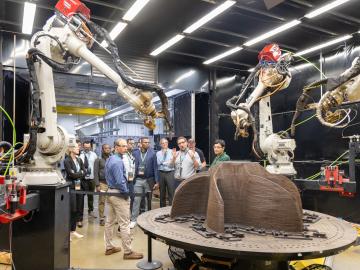
Momentum for manufacturing innovation in the United States got a boost during the inaugural MDF Innovation Days, held recently at the U.S. Department of Energy Manufacturing Demonstration Facility at Oak Ridge National Laboratory.


